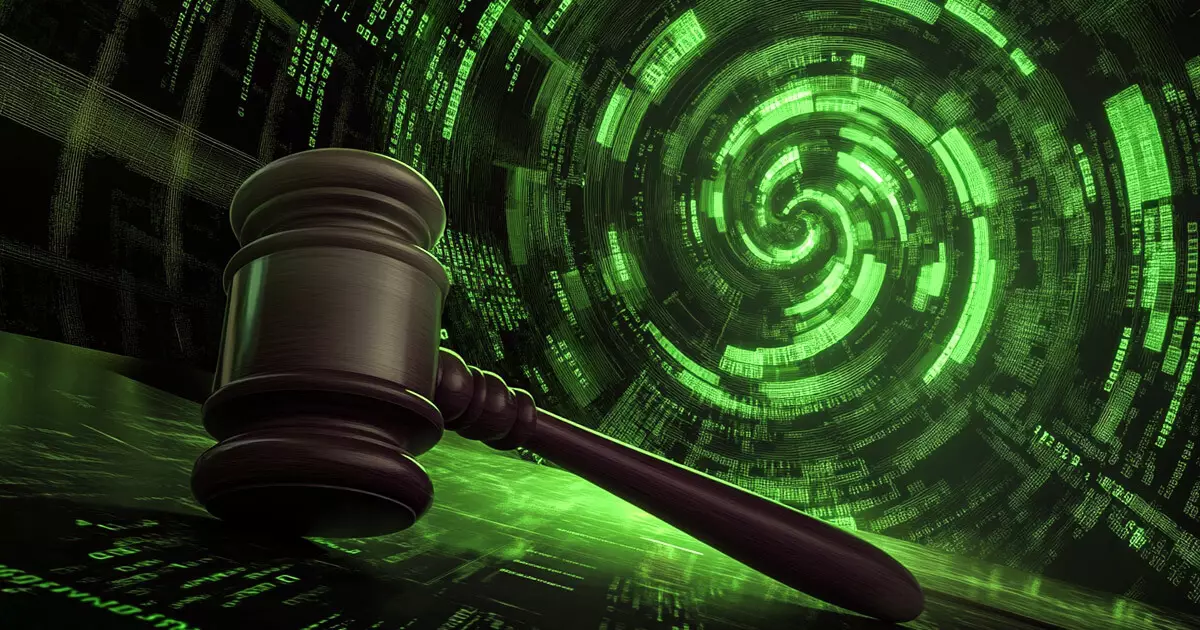The recent ruling by Judge Katherine Polk Failla in the Southern District of New York marks a crucial moment for the cryptocurrency industry. Delivered on September 26, this decision circumscribes the interpretation of the First Amendment in relation to software code utilized in crypto protocols, notably targeting Tornado Cash. The implications of this judgment are profound, as they not only redefine the legal landscape for cryptocurrency developers but also present significant risks to the freedom of expression within the tech community.
Central to the case was the argument posed by Roman Storm, a developer of Tornado Cash, who contended that the software code deployment should be protected under free speech laws. Tornado Cash has been at the forefront of discussions on privacy and anonymity in cryptocurrency transactions, functioning as a mixer to obscure the origins of digital funds. Storm’s assertions were ultimately dismissed by Judge Failla, who posited that while software code may be expressive, its application in executing transactions falls outside First Amendment protections. This ruling also sets a precedent establishing crypto protocols as “money transmitters” under the Bank Secrecy Act (BSA), regardless of whether the developers retain control over the funds transacted.
Precedent for Money Transmission and Developer Accountability
The ruling raises critical concerns about how the law will treat not only Tornado Cash and its progeny—such as Samourai Wallet—but also the broader spectrum of decentralized finance (DeFi) innovations. Both the Tornado Cash and Samourai Wallet protocols have been scrutinized for potential violations of U.S. sanctions laws due to their perceived facilitation of illicit activities. The court sided with U.S. prosecutors who argued that the lack of control over the funds does not exempt these platforms from being classified as money transmitters.
This classification holds significant weight in legal accountability. The ruling indicates that developers could be held liable for the actions taken with their code, creating a precarious environment for innovation in blockchain technology. In a rapidly evolving landscape where anonymity and privacy features are paramount, this decision poses existential risks for developers who design tools aimed at promoting privacy.
The reactions to Failla’s ruling have been characterized by discontent from multiple stakeholders within the cryptocurrency arena. Prominent figures, such as Amanda Tuminelli from the DeFi Education Fund, expressed that the ruling sets an alarming precedent that could exacerbate the liabilities faced by software developers in unprecedented ways. Tuminelli’s remarks reflect a widening apprehension that this precedent might not only threaten individual developers but also stifle innovation in the industry at large.
Legal experts and advocates for software developers have also voiced their dismay. Jake Chervinsky, chief legal officer at Variant, condemned the ruling as a serious infringement on the rights of software developers, labeling it a “travesty of justice.” His stark criticism underscores the broader implications of the ruling, suggesting that it could act as a chilling effect on technological advocacy and the free exchange of ideas in the coding community.
As Roman Storm gears up for his trial on December 2, the anticipation regarding the future ramifications of this ruling intensifies. Storm’s legal team is reportedly preparing to appeal the decision, signaling a potential escalation in the legal discourse surrounding cryptocurrency development. This appeal will not only seek to contest the minimalization of free speech protections for code but also challenge the broader framework of how crypto developers might be treated under U.S. law.
The rulings and upcoming trials serve as bellwethers for future regulatory actions as lawmakers endeavor to reconcile the existing financial laws with the complex, rapidly evolving realities of the cryptocurrency space. The outcome of Storm’s case could spur a pivotal re-evaluation of regulations that govern digital finance, technology, and the interaction between freedom of expression and legal accountability.
Judge Failla’s decision sets a pivotal milestone in the intersection of technology and law that could define the future of cryptocurrency development in the United States. As crypto protocols continue to confront regulatory scrutiny, the sector must grapple with a landscape increasingly influenced by legal precedents that could redefine foundational principles of innovation and expression. The road ahead will undoubtedly be fraught with challenges, but it will also provide critical opportunities for advocacy, dialogue, and, potentially, transformation in the regulatory arena.















Leave a Reply